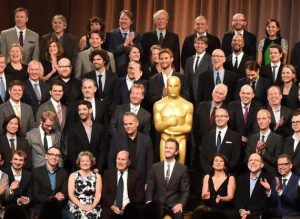The Impact Of Films by Gerry Orz, KIDS FIRST! Film Critic, age 14
Friday, February 10th, 2017 In my past blogs, I often look at how film is changing due to new technologies and changing mediums. This week, I don’t want to talk about how film is changing, but how film changes the world. Despite what many think, it isn’t just documentaries that can open up people’s eyes on current issues that need to be talked about. Historically, there are many films that completely changed the world thanks to their stories, messages and legendary quality.
In my past blogs, I often look at how film is changing due to new technologies and changing mediums. This week, I don’t want to talk about how film is changing, but how film changes the world. Despite what many think, it isn’t just documentaries that can open up people’s eyes on current issues that need to be talked about. Historically, there are many films that completely changed the world thanks to their stories, messages and legendary quality.
I recently reviewed a film called Never Again is Now which focuses on the rise of anti-Semitism in Europe. It not only tells the story of horrible events taking place and their cause, but it also tells the story of Holocaust survivors. It connects the past and the present and shows how thinking that the Holocaust was one terrible event never to be repeated is far from the truth. The film focuses on current events in Europe, but that isn’t the only place it’s happening. It’s been happening in every corner in the world, including here in United States. No one can deny that there is a rise of racism that is very apparent in United States and it should not be allowed to continue. Anti-Semitism is a very strong example of how hatred is at an all time high around the globe.
This signs of hate are a massive issue that seem like no one can stop. But it is very easy to stop hatred of all types. If you see someone behaving in a racist or hateful way, stop them. Confront them. If you hear about an issue (as I learned about with anti-Semitism), don’t stay silent. Speak up. Social media has a tremendous impact on the lives of millions of people and, just a simple post on FaceBook or Twitter helps spread the word about hate. It may seem like just talking about anti-Semitism or racism as a whole won’t do anything, but it will.
In Never Again is Now, one of the most important points made is that politically, no one wants to confront the issue of anti-Semitism. Talking about specific people being racist seems politically incorrect and that makes it even worst. Simply talking about such big issues will do so much.
Like I said, films make huge impacts on society as a whole. A one hour and thirty minute film made me think of the world in a completely different way. I soon realized that I can help spread the word about what is going on around the world. I want to leave this blog with a message to you, the reader. Don’t just stay silent. People stayed silent during the Holocaust and other genocides. If people spoke up instead of staying silent, many horrible events could have been prevented, and hate as a whole might have made a much smaller and more mild impact, if at all. Don’t let history repeat itself. Let us be smart for once and actually learn from our mistakes. Let’s move on to a brighter tomorrow for the sake of our children and their future.



